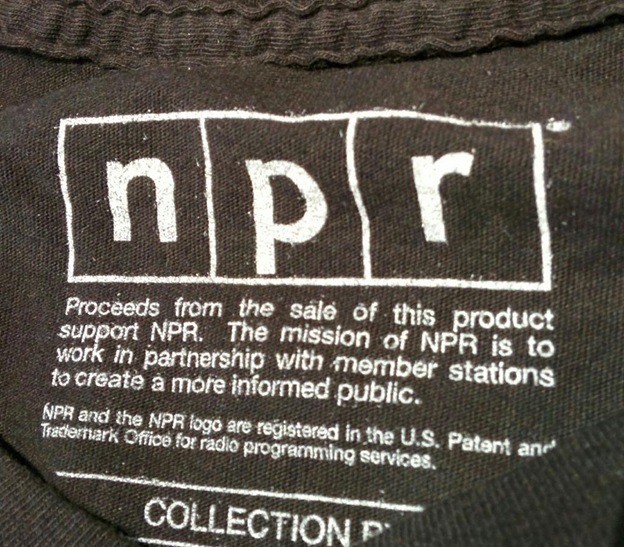If you work in radio, chances are good that you have a closetful of logoware, representing your journey in the business from stations to station, and market to market. Most radio pros proudly sport the colors – in the form of the station logo.
But a tattoo that indelibly identifies you with your brand? That’s a whole other level of commitment that few in the radio business would ever embrace. After all, even lifers like Dan Mason and Steve Goldstein prove to us that few careers with stations or corporations are forever.
A different level of commitment, however, is displaying the company’s mission statement. And that leads to some different questions:
Do you know your company or even your station’s raison d’être – its reason for existing, its purpose, its mission? Do you buy into it? Does it provide a sense of guidance and comfort that you’re working for an organization that shares your values and sensibilities?
Surprisingly, many people don’t really understand what’s behind their corporate mandate, besides achieving higher ratings and revenues. And while you still see those hackneyed mission statements on radio station lobby walls, you’d be hard-pressed to find too many employees who can recite them, much less even aware they exist.
It’s important for employees to have and share goals, and not just the ones that revolve around Nielsen and Miller Kaplan. Understanding a company or a station’s true core values as disseminated by the owner, CEO, EVP, or market manager can align the organization from the corner office to the receptionist’s desk.
A sense of pride in a company or station, and what they’re all about is at the foundation of attracting and retaining the best, the brightest, and the most accomplished employees. Just a decade ago in radio, more employees felt this way about the companies that hired them – or the companies where they aspired to work.
That’s why NPR has always stood out as a fascinating example of core values that are truly meaningful. Even though the entity was launched 44 years ago and its statement of purpose has been modified, its original position is still valid and relevant today. Back when we first started doing work for public radio and NPR in the ‘90s, we ran into employees who carried a laminated card that spelled out these core values – something tangible and present that acts as sort of a moral and journalistic litmus test for decisions that need to be made.
Well, now in a sartorial twist, radio futurist James Cridland wrote about a shirt that contains NPR’s mission right on the front.
Of course, there’s more to it than that. NPR’s mission and vision goes beyond this one-line and provides more brand depth and detail than this article of clothing. But the essence of what NPR is all about is well-known to everyone who works in the organization – a benefit and asset that makes working there a very streamlined, straight-forward proposition.
By knowing what the organization stands for, professionals can truly do their best work. At times like these, every business and non-profit can benefit from a statement of purpose. As we have discussed before in this blog, understanding what listeners and advertisers are hiring radio stations to do is a start. But every broadcaster is going about this differently, proving there are many pathways to success.
As radio finds itself forced to exist with competitive forces via smartphones, tablets, laptops, and dashboards, that mission statement of purpose about what a brand or a company truly stands for has never been more important. What is it that you offer that consumers cannot get anywhere else? What is your brand or company’s value proposition and why does it matter to the constituencies you serve?
It’s important to define your mission statement, make it available to everyone in the organization, and then get out there and make it real.
Mission accomplished.
- Can Radio Afford To Miss The Short Videos Boat? - April 22, 2025
- Media And Technology In 2025: Believe It Or Not! - April 18, 2025
- In Radio, You Just Never Know - April 17, 2025







Fred – I was thrilled to see this blog post. I actually just told our sales manager that we needed to create a mission statement. I want our staff to take some time to think about what we/they do that makes an impact. Radio has this great ability to move people if done right. A quality mission statement will also hold us a little more accountable. Every year we should stack ourselves up against the mission statement and ask “are we holding up our end?”
I love it, Matt. That’s exactly the reaction I hoped this post would generate. We can’t just keep going through the ratings/sales motion. The game is changing and with it, our missions. Thanks for the kind comment.